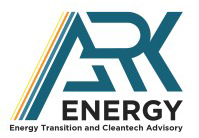IDEA needed a tool to track carbon emissions to launch a comprehensive carbon accounting initiative complementing its longstanding District Energy Space Report. This initiative, known as the Carbon Count, aims to demonstrate the district energy industry’s progress towards decarbonization, showcasing innovation and best practices, and assessing system-level and aggregate carbon mitigation results. IDEA selected EnergyCAP CarbonHub after a trial period due to its flexibility in data submission and robust reporting tools, which will help track emissions across the rapidly growing industry, aiding cities, campuses, and hospitals in their journey toward net-zero carbon emissions.
About IDEA
The International District Energy Association (IDEA) works actively to foster the success of our members as leaders in providing reliable, economical, efficient, and environmentally sound district heating, district cooling, and combined heat and power.
IDEA represents over 2,500 members from more than 25 countries around the world and from across the district energy industry. IDEA members own, operate or provide technology and services to district energy systems that supply steam, hot water, chilled water and energy services to multiple buildings in cities, communities, campuses, airports, military bases, industry and healthcare facilities.
The challenge
In 2022 a board member approached IDEA about launching a carbon accounting initiative to accompany our longstanding District Energy Space Report. Every year since 1990 IDEA member systems have submitted data on the number of new or recommitted customer buildings and the square foot area that represents. The report distinguishes between North America and Beyond North America markets and identifies by services provided (heating, cooling, both) and building use (i.e. commercial office; residential, etc).
IDEA’s hope is that, over time, it will similarly be able to demonstrate the district energy industry’s overall efforts towards decarbonization through our Carbon Count initiative. Due to its ability to implement lower-carbon and renewable solutions at scale, district energy can be a faster path to net-zero for cities, college campuses, hospitals, and other clusters of networked buildings seeking cost-effective carbon reduction measures. Having a tool to track carbon emissions will also help IDEA to showcase innovation and best practices in our sector and assess carbon mitigation results by system and in aggregate.
The solution
In the first year, a steering committee was formed to create Carbon Count and helped develop an overall framework for data collection and reporting into a spreadsheet, modeled in part on the District Energy Space submission form, which captured Scope 1 and 2 emissions. After the first-year trial, IDEA evaluated and decided to transition over to EnergyCAP CarbonHub because the system allows them to significantly uplevel their efforts. It has flexibility in what forms of data can be submitted and offers more robust reporting tools, which is particularly valuable for systems without preexisting carbon accounting protocols. There are over 600 district energy systems operating today in North America, and thousands more in Europe, Middle East, Asia, and Asia Pacific. The industry is growing rapidly, so IDEA needs the ability to assess the carbon emissions advantages and scale.
After the first-year trial, IDEA evaluated and decided to transition over to EnergyCAP CarbonHub because the system allows them to significantly uplevel their efforts. It has flexibility in what forms of data can be submitted and offers more robust reporting tools, which is particularly valuable for systems without preexisting carbon accounting protocols.
IDEA’s goals
District energy is an important tool for decarbonization and sustainability, especially in cities, on campuses and for clustered developments. District energy can accelerate achievement of net-zero goals by aggregating the energy needs of dozens or hundreds of buildings. Modifying the central plant(s) to lower-carbon technologies enables all the connected customers downstream to benefit from a lower carbon solution, with much less risk and uncertainty. With CarbonHub the aim is to facilitate awareness of best practices in district energy and demonstrate carbon reduction results in aggregate to educate and inform policymakers, regulators, and the utility industry at large. The plan is to measure how those emissions reductions savings grow year over year–and educate influential stakeholders like legislators and building owners on the benefits of district energy as the need for solutions to reduce emissions also continues to grow.
The process and challenges
IDEA is approaching the tool like a pilot program. In the first phase, they ask IDEA members to fill in a slightly truncated version of the CarbonHub record upload sheet and submit it to us via email. After receiving the information, the IDEA team will double-check the data and upload it into CarbonHub. Eventually, IDEA will hopes to give submitters the option of directly importing their data into CarbonHub and managing submissions on a rolling basis.
IDEA is in an interesting position with this project because they’re aggregating the carbon reporting efforts of other organizations, rather than managing the entire process themselves.
This required them to design a data submission process that can accommodate a full spectrum of carbon accounting expertise: some university systems have been participating in robust annual reporting processes for years (through the AASHE STARS program or other reporting framework), some utility members are required to report emissions to state or federal governments, and some systems are just starting out. Some of systems are also required to report to different governing bodies using different reporting methodologies, and IDEA is sensitive to the fact that adding yet another annual accounting process (especially if we were to dictate an accounting system that produced differing final emissions numbers) may be both onerous and politically fraught.
In the first year, they opted to allow systems to submit data generated via any methodology and pledged to present data only in aggregated and anonymized formats. This worked well for systems with robust carbon accounting programs but didn’t offer enough support for systems just beginning to dabble in carbon accounting. IDEA selected EnergyCAP CarbonHub as a platform for its ease of use and because the ability to submit commodities helps bridge this knowledge gap.
The goal is to encourage and grow IDEA member participation in this program, as members are in different places in their sustainability journey. CarbonHub allows the opportunity to have a central, user-friendly location where carbon data across systems can be inputted and aggregated.
The goal is to encourage and grow IDEA member participation in this program, as members are in different places in their sustainability journey. CarbonHub allows the opportunity to have a central, user-friendly location where carbon data across systems can be inputted and aggregated.
Visions for the future
District energy systems can produce significant decarbonization opportunities for connected buildings at scale using energy recovery, efficiency investments, fuel flexibility, thermal storage, geo-exchange and geothermal generation, and renewable integration. These are changes that can be made at the plant level with immediate positive effect on connected buildings. There are systems across the US (and the world) that are demonstrating a range of diverse paths to decarbonization. IDEA’s hope is that, by collecting the emissions data and decarbonization strategies being deployed, they will be better able to harmonize results, share progress underway, and encourage others to replicate these successful outcomes.
As cities, states, provinces, and federal governments consider rulemaking, policies and regulations to cut carbon emissions, it is important that district energy systems are fully recognized for the many advantages. We also believe that investors and institutions will be interested in how district energy systems can unlock value and enhance competitiveness in a carbon-constrained world.

 Best-in-class portfolio-level energy and utility bill data management and reporting.
Best-in-class portfolio-level energy and utility bill data management and reporting.
 Real-time energy and sustainability analytics for high-performance, net-zero buildings.
Real-time energy and sustainability analytics for high-performance, net-zero buildings.
 A holistic view of financial-grade scope 1, 2, and 3 carbon emissions data across your entire business.
A holistic view of financial-grade scope 1, 2, and 3 carbon emissions data across your entire business.
 Energy and sustainability benchmarking compliance software designed for utilities.
Energy and sustainability benchmarking compliance software designed for utilities.




